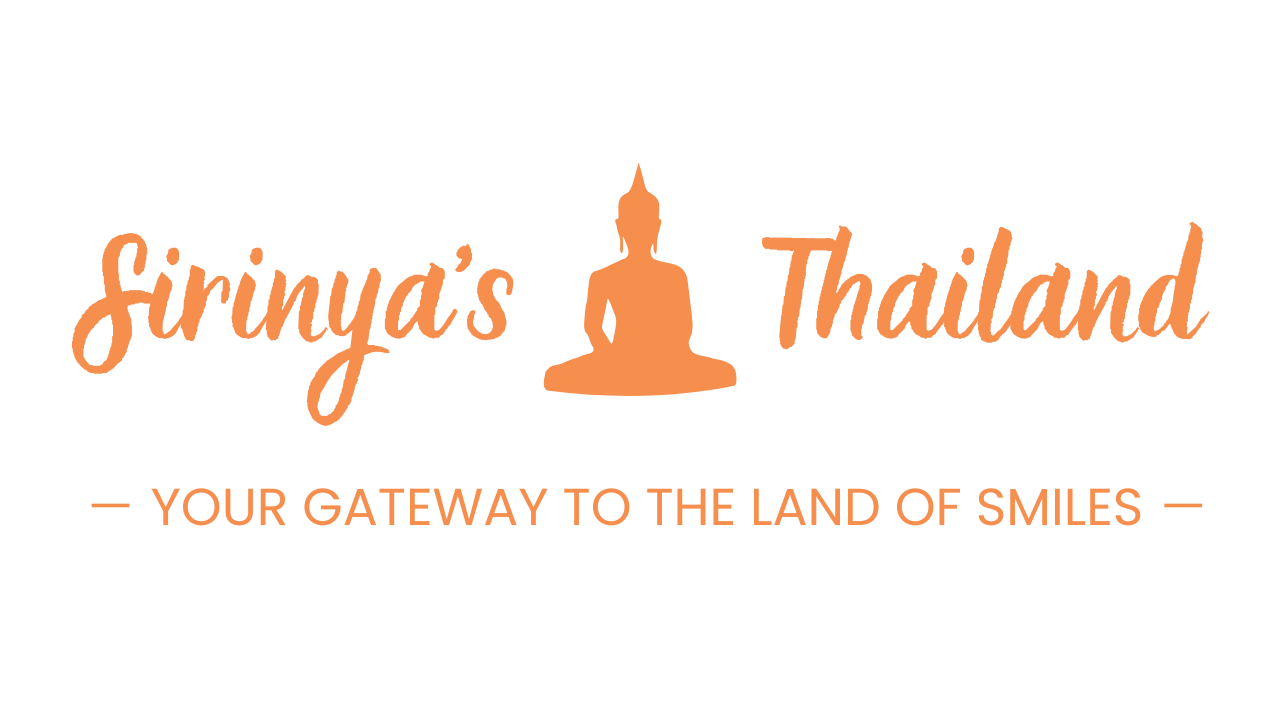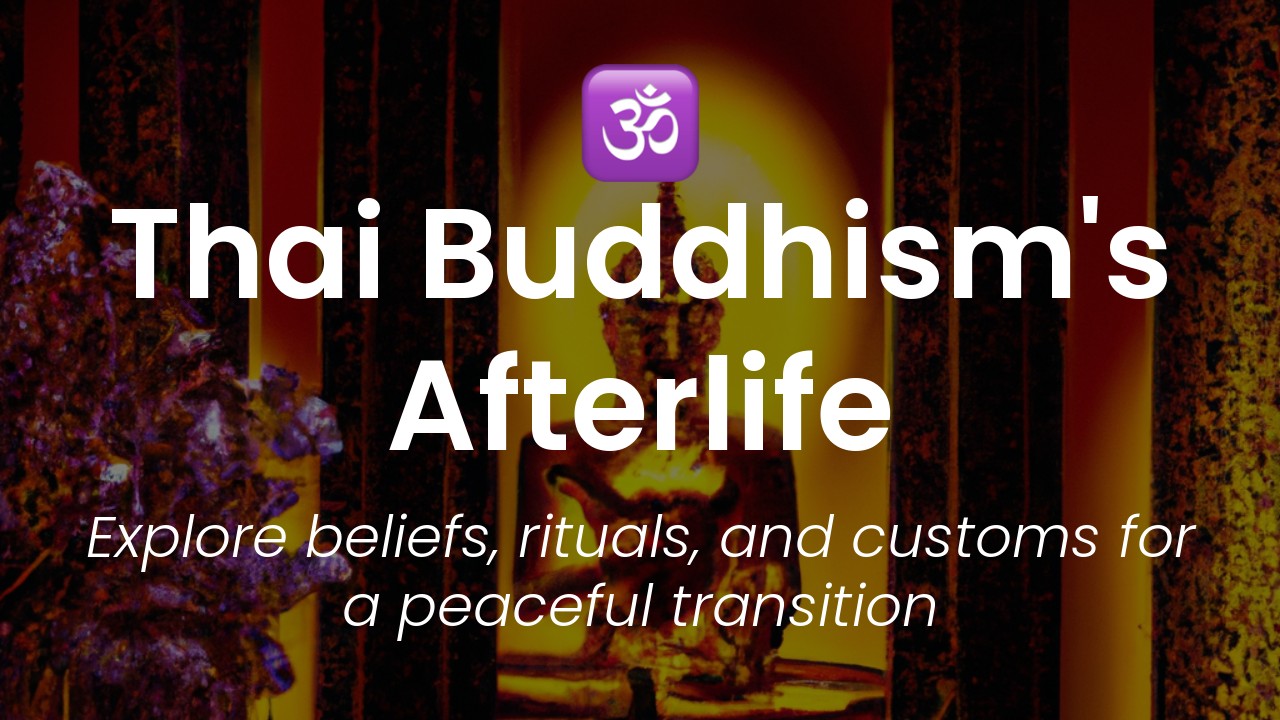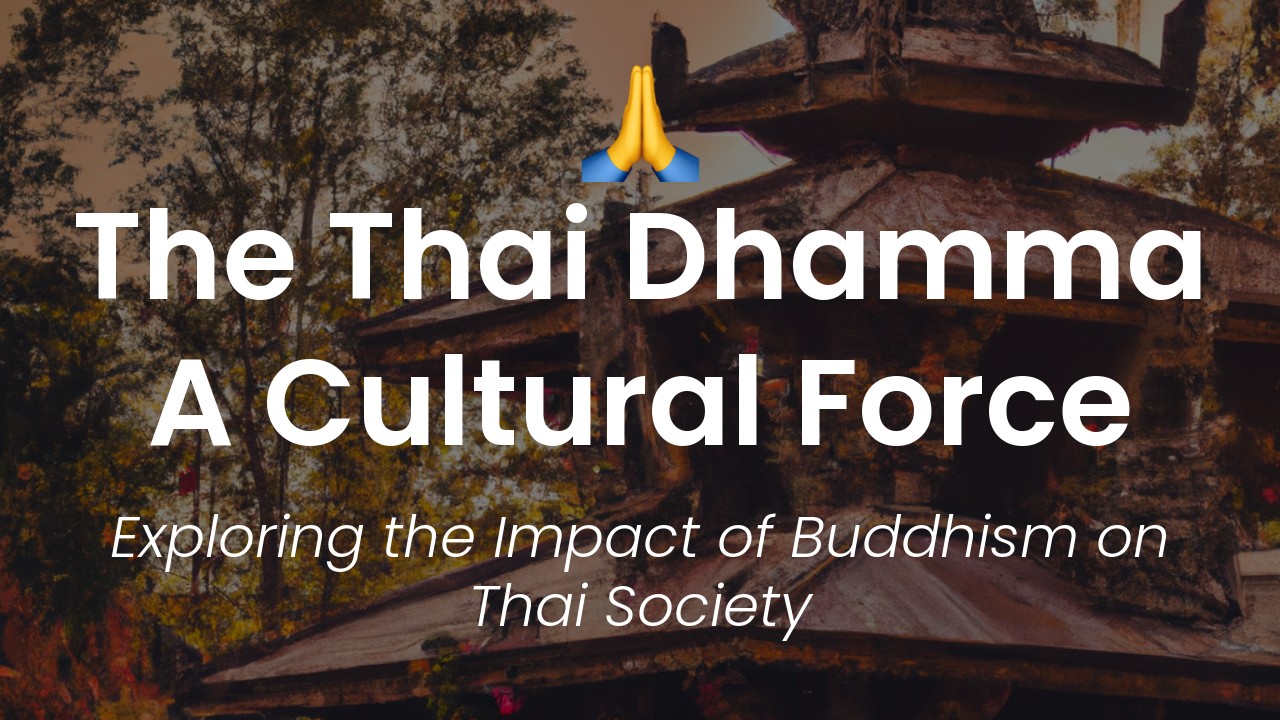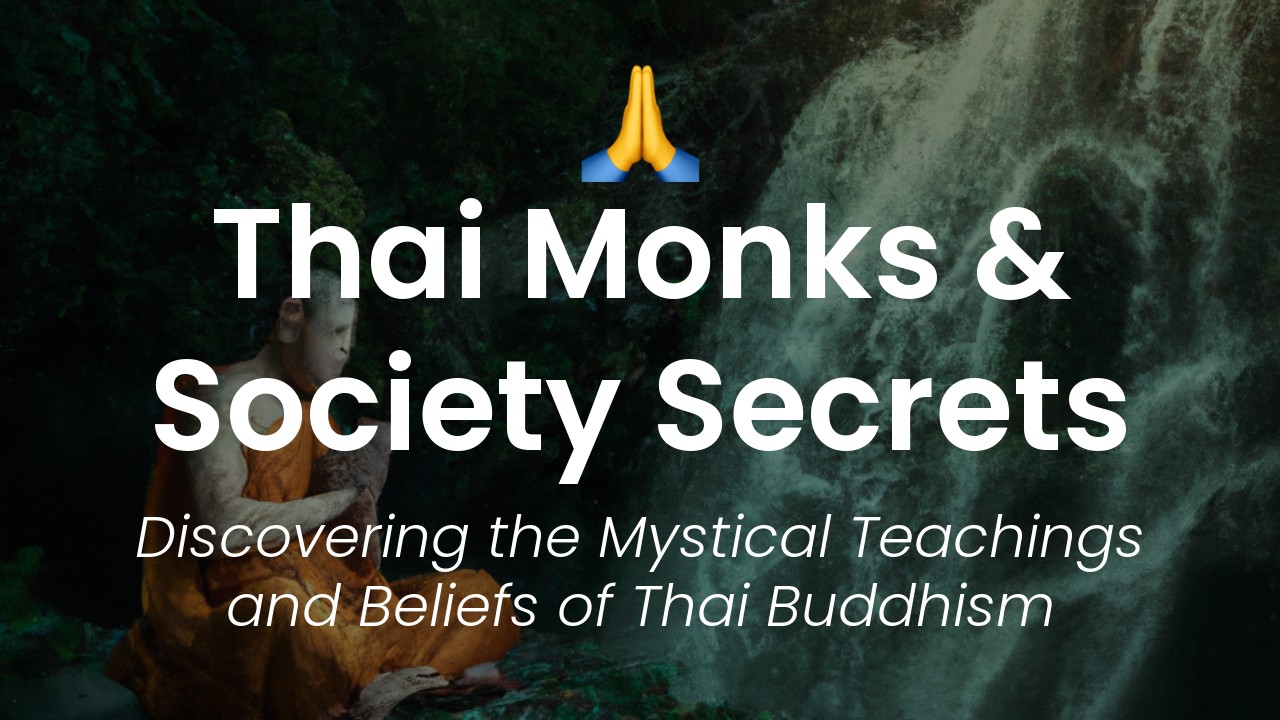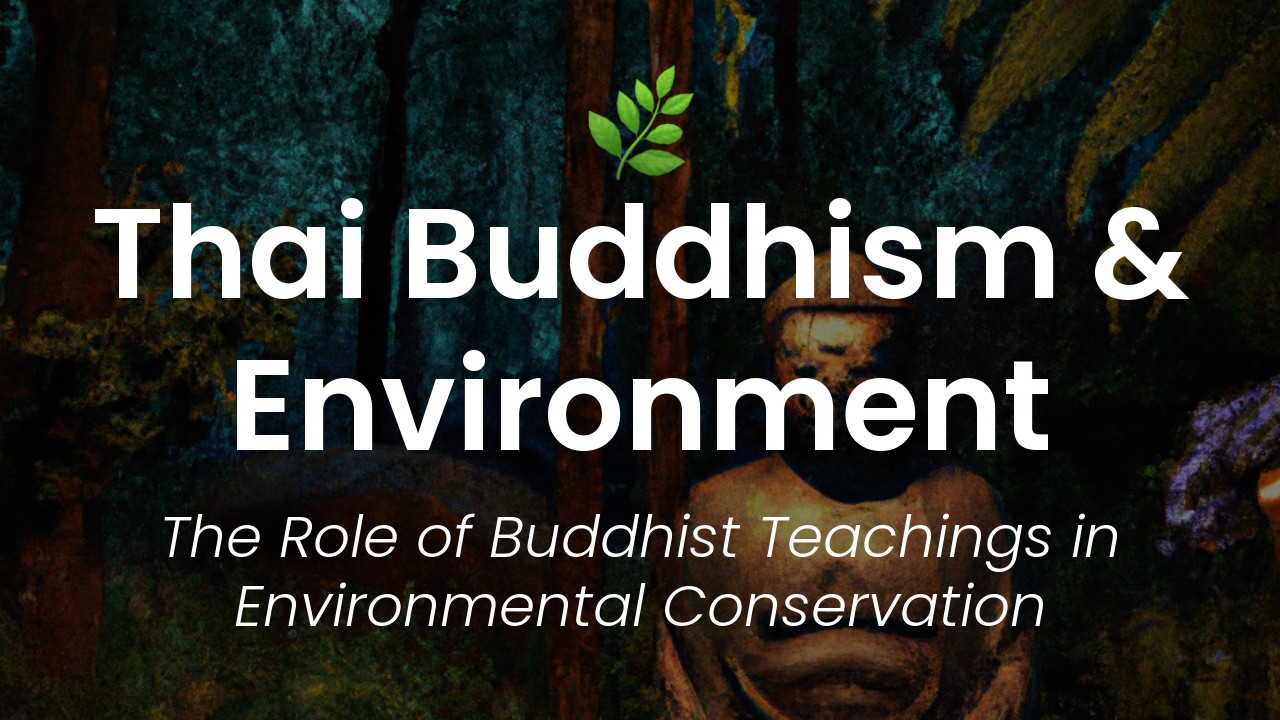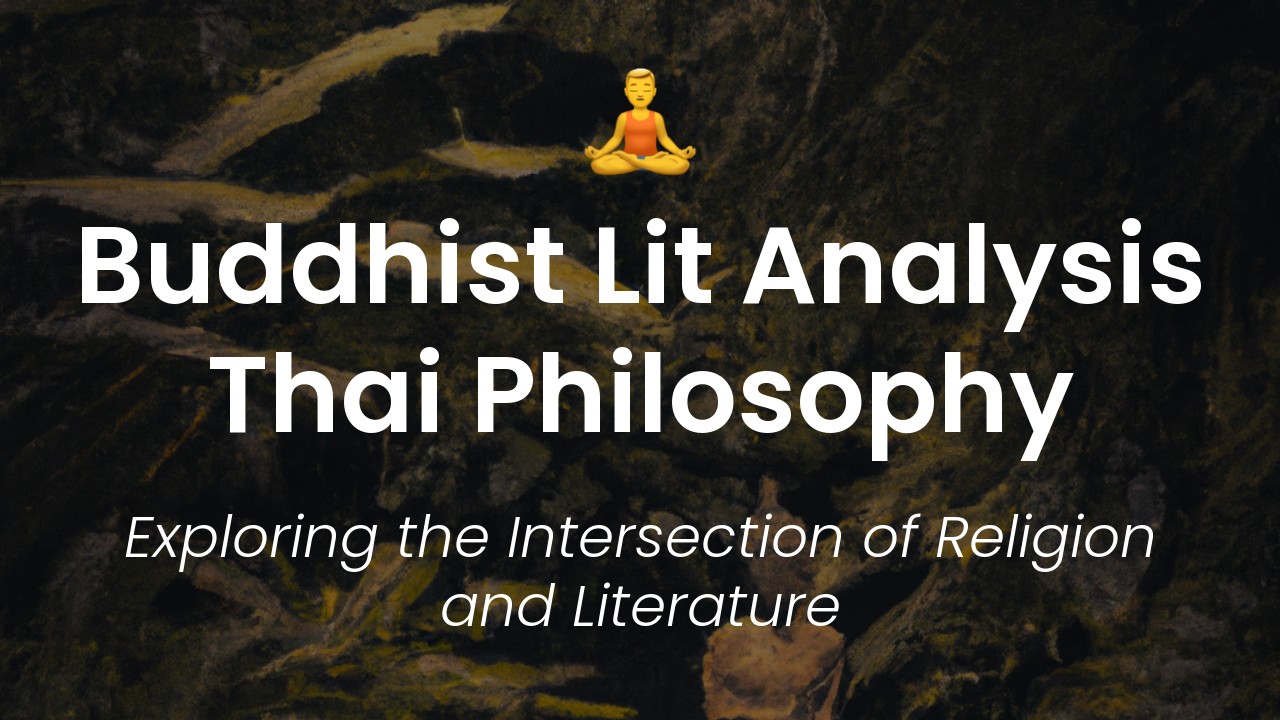Hi there, my name is Sirinya, and I'm here to share a surprising truth about Buddhism and suffering in Thailand. As a young woman from Thailand, I grew up surrounded by Buddhism and its many teachings. I've always been fascinated by its unique approach to life, and how it encourages people to focus on the present moment, let go of attachments, and cultivate inner peace.
However, through my travels and experiences, I've come to realize that there's more to Buddhism and suffering than meets the eye. While it's true that Buddhism teaches us to accept and manage suffering, there's a deeper truth that many people don't realize: that suffering is not just a part of life, it's an opportunity for growth and transformation.
In this article, I'll explore the surprising truth about Buddhism and suffering in Thailand. I'll share stories from my personal experiences and those of others, and explain how Buddhism's teachings on suffering can help us to live more meaningful and fulfilling lives. Whether you're a spiritual seeker or just curious about Thai culture, I hope that this article will inspire you to think differently about suffering and its role in our lives. So, let's dive in!
Misconceptions About Buddhism & Suffering
When people think of Buddhism, the concept of suffering often comes to mind. But what exactly is the relationship between Buddhism and suffering? Is Buddhism simply about accepting and enduring suffering, or is there more to it than that? In this article, I want to explore the surprising truth about Thai Buddhism and suffering, including some common misconceptions and insights that may challenge your preconceived notions.
Buddhism's Unique Approach to Suffering
First, let's start by clarifying that Buddhism isn't just about accepting suffering. In fact, the core teachings of Buddhism offer a unique approach to suffering that is different from many other religions or philosophies. At the heart of this approach is the Four Noble Truths, which form the basis of Buddhist understanding.
The first of these Noble Truths is that life includes suffering, or dukkha in Pali. This might seem like a depressing insight at first, but it's not meant to be. Instead, it's a sober recognition that life isn't always easy, and that everyone experiences some degree of dissatisfaction, discomfort, and pain.
The second Noble Truth is that the cause of suffering is craving, or tanha in Pali. This includes not only external desires for material possessions or relationships, but also internal cravings for things like status, approval, or control. When we cling to these desires and expectations, we set ourselves up for disappointment and suffering.
The third Noble Truth is that it's possible to overcome suffering. This might seem like an impossible claim, but it's actually a sign of hope. Buddhism offers ways to break free from the cycle of craving and suffering, which we'll explore more in later sections.
The fourth and final Noble Truth is that there is a path to the end of suffering, called the Eightfold Path. This path includes steps like Right Understanding, Right Intention, Right Speech, Right Action, Right Livelihood, Right Effort, Right Mindfulness, and Right Concentration. Each of these steps is meant to help practitioners cultivate greater awareness, wisdom, and compassion, which can lead to a state of liberation from suffering.
The Role of Karma in Thai Buddhism
One aspect of Buddhism that often confuses people is the concept of karma. In popular Western culture, karma is often portrayed as a kind of cosmic justice system, in which good deeds are rewarded and bad deeds are punished. But in Thai Buddhism, karma is understood in a more nuanced way.
At its core, karma simply means action or cause-and-effect. When we act, we create ripples in the world around us that can have positive or negative consequences. This applies not only to our external behaviors, but also to our internal thoughts and emotions.
In Thai Buddhism, karma is seen as a natural law that governs the universe, rather than a divine judgment system. The idea is that our past actions (in this life or previous lives) influence our present circumstances, and our present actions will shape our future circumstances. This means that we have the power to create positive change in our lives and in the world, but we also have to take responsibility for our actions and their consequences.
The key insight here is that karma isn't just about reward and punishment; it's about developing awareness and mindfulness in our actions and intentions. By cultivating positive qualities like generosity, compassion, and wisdom, we can create positive karma that will lead to greater well-being and happiness.
The Importance of Mindful Awareness
Another core teaching of Buddhism is the importance of mindful awareness. This refers to the practice of paying attention to the present moment, without judgment or distraction. Mindful awareness helps us to become more aware of our thoughts, emotions, and physical sensations, which can help us to better understand our own minds and reduce our suffering.
One way that mindful awareness is cultivated in Thai Buddhism is through the practice of meditation. Meditation involves training the mind to focus on a particular object or sensation, such as the breath. By doing so, we can become more aware of the present moment and less caught up in distracting thoughts or worries.
In Thai Buddhism, meditation is seen as a way to cultivate clarity, tranquility, and equanimity. Through regular practice, meditators can develop greater emotional resilience and mental focus, which can help them to navigate life's challenges with more grace and ease.
Practices in Thai Buddhism to Alleviate Suffering
So how exactly do Thai Buddhists apply these insights to alleviate suffering in their everyday lives? There are many practices in Thai Buddhism that are designed to help practitioners cultivate greater awareness, compassion, and wisdom. Here are just a few examples:
-
Dana: Dana refers to the practice of generosity, or giving. Thai Buddhists believe that giving is a powerful way to cultivate positive karma and reduce suffering. This can involve giving material objects, but it can also include acts of service, kindness, or support.
-
Puja: Puja is a form of worship or devotion that involves offering respect and gratitude to the Buddha, the Dharma (the teachings of Buddhism), and the Sangha (the community of practitioners). This practice helps to cultivate a sense of connection and reverence, which can support one's spiritual growth and well-being.
-
Metta: Metta is the practice of loving-kindness, or cultivating a sense of unconditional love and goodwill towards oneself and others. This practice involves reciting specific phrases or mantras that aim to generate feelings of warmth, compassion, and friendliness.
-
Vipassana: Vipassana is a form of insight meditation that involves observing one's own mind and body in a systematic and non-judgmental way. This practice helps to develop greater awareness of the impermanence, unsatisfactoriness, and non-self nature of all phenomena, which can lead to greater clarity and wisdom.
-
Sila: Sila refers to the practice of ethical conduct, which involves refraining from harmful actions and cultivating positive virtues like honesty, compassion, and generosity. This helps to create a foundation of well-being and stability in one's life, which can support one's spiritual growth and practice.
Navigating Difficult Emotions in Thai Buddhism
Of course, even with all of these practices and insights, life can still be challenging and difficult at times. Thai Buddhists recognize that negative emotions like anger, fear, and sadness are natural parts of the human experience, and that learning to navigate them skillfully is an important part of the spiritual path.
One approach to navigating difficult emotions in Thai Buddhism is to practice mindfulness in the midst of the emotion itself. Instead of trying to suppress or avoid the emotion, one can simply observe it with curiosity and non-judgmental awareness. This can help to reduce the intensity of the emotion and provide a sense of space and perspective.
Another approach is to cultivate positive emotions that can counteract negative ones. For example, if one is feeling angry or resentful towards someone, one might practice Metta meditation to cultivate feelings of compassion and goodwill towards that person. This can help to transform the negative emotion into a more positive and constructive one.
Finding Peace Through Thai Buddhist Teachings
In conclusion, Thai Buddhism offers a unique approach to suffering that is grounded in the teachings of the Four Noble Truths, the concept of karma, and the importance of mindful awareness. By cultivating positive qualities like generosity, compassion, and ethical conduct, and by practicing meditation and navigating difficult emotions skillfully, Thai Buddhists aim to alleviate suffering and find greater peace and well-being in their lives. While these teachings may challenge some of our preconceived notions about Buddhism and suffering, they offer a powerful invitation to explore our own minds and hearts with curiosity and kindness.
